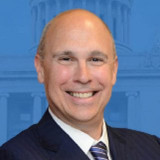The Conformity Act -- Rev.Stat., § 914 -- does not apply to the
power of the court to inquire into the conduct of jurors. The
courts of each jurisdiction, state and federal, must be in a
position to adopt and enforce their own self-preserving rules.
While Rev.Stat., § 914, does not apply in this case, this Court
recognizes the same policy that has been declared by that court and
by the courts in England and in most of the states of the Union,
that the testimony of a juror may not be received to prove the
misconduct of himself or his colleagues in reaching a verdict.
The rule, endorsed by this Court in this case, that a juror may
not impeach his own verdict is based upon controlling
considerations of public policy which in such cases chooses the
lesser of two evils.
While jurors should not reach a verdict by lot, or, as in this
case, by averaging the amounts suggested by each, the verdict may
not be set aside on the testimony of a juror as to his misconduct
or that of his colleagues.
206 F. 263 affirmed.
The facts, which involve the validity of a verdict and judgment
of the circuit court of the United States in an action for
services, are stated in the opinion.
Page 238 U. S. 265
MR. JUSTICE LAMAR delivered the opinion of the Court.
Pless & Winbourne, attorneys at law, brought suit in the
superior court of McDowell County, North Carolina, against McDonald
to recover $4,000 alleged to be due them for legal services. The
case was removed to the then Circuit Court of the United States for
the Western District of North Carolina. There was a trial in which
the jury returned a verdict for $2,916 in favor of Pless &
Winbourne. The defendant McDonald moved to set aside the verdict on
the ground that, when the jury retired, the foreman suggested that
each juror should write down what he thought the plaintiffs were
entitled to recover, that the aggregate of these amounts should be
divided by 12, and that the quotient should be the verdict to be
returned to the court. To this suggestion all assented.
The motion further averred that, when the figures were read out
it, was found that one juror was in favor of giving plaintiffs
nothing, eight named sums ranging from $500 to $4,000, and three
put down $5,000. A part of the jury objected to using $5,000 as one
of the factors, inasmuch as the plaintiffs were only suing for
$4,000. But the three insisted that they had as much right to name
a sum above $4,000 as the others had to vote for an amount less
than that set out in the declaration. The various amounts were then
added up and divided by 12. But by reason of including the three
items of $5,000, the quotient was so much larger than had been
expected that much dissatisfaction with the result was expressed by
some of the jury. Others, however, insisted on standing by the
bargain, and
Page 238 U. S. 266
the protesting jurors finally yielded to the argument that they
were bound by the previous agreement, and the quotient verdict was
rendered accordingly.
The defendant further alleged in his motion that the jurors
refused to file an affidavit, but stated that they were willing to
testify to the facts alleged, provided the court thought it proper
that they should do so. At the hearing of the motion, one of the
jurors was sworn as a witness, but the court refused to allow him
to testify on the ground that a juror was incompetent to impeach
his own verdict. That ruling was affirmed by the court of appeals.
(206 F. 263.) The case was then brought here by writ of error.
On the argument here, it was suggested that it was not necessary
to consider the question involved as an original proposition, since
the decision of the federal court was in accordance with the rule
in North Carolina (
Purcell v. Railroad Co., 119 N.C. 739),
and therefore binding under Rev.Stat. § 914, which requires that
the practice, pleadings, and forms and modes of procedure in the
federal courts shall conform as near as may be to those existing in
the state within which such federal courts are held. But neither in
letter nor in spirit does the conformity act apply to the power of
the court to inquire into the conduct of jurors who had been
summoned to perform a duty in the administration of justice, and
who, for the time being, were officers of the court. The conduct of
parties, witnesses, and counsel in a case, as well the conduct of
the jurors and officers of the court, may be of such a character as
not only to defeat the rights of litigants, but it may directly
affect the administration of public justice. In the very nature of
things, the courts of each jurisdiction must each be in a position
to adopt and enforce their own self-preserving rules.
Nudd v.
Burrows, 91 U. S. 427
(4),
91 U. S. 441;
Railroad Co. v. Horst, 93 U. S. 291,
93 U. S. 300;
Grimes Co. v. Malcolm, 164 U. S. 483,
164 U. S. 490;
Lincoln v.
Power, 151 U.S.
Page 238 U. S. 267
436,
151 U. S. 442;
Burgess v. Seligman, 107 U. S. 20,
107 U. S. 33;
Liverpool &c. Co. v. Friedman, 133 F. 716.
But, though Rev.Stat. § 914 does not make the North Carolina
decisions controlling in the federal court held in that state, we
recognize the same public policy which has been declared by that
court, by those in England, and most of the American states. For
while, by statute in a few jurisdictions and by decisions in
others, the affidavit of a juror may be received to prove the
misconduct of himself and his fellows, the weight of authority is
that a juror cannot impeach his own verdict. The rule is based upon
controlling considerations of a public policy, which in these cases
chooses the lesser of two evils. When the affidavit of a juror as
to the misconduct of himself or the other members of the jury is
made the basis of a motion for a new trial, the court must choose
between redressing the injury of the private litigant and
inflicting the public injury which would result if jurors were
permitted to testify as to what had happened in the jury room.
These two conflicting considerations are illustrated in the
present case. If the facts were as stated in the affidavit, the
jury adopted an arbitrary and unjust method in arriving at their
verdict, and the defendant ought to have had relief if the facts
could have been proved by witnesses who were competent to testify
in a proceeding to set aside the verdict. But let it once be
established that verdicts solemnly made and publicly returned into
court can be attacked and set aside on the testimony of those who
took part in their publication, and all verdicts could be, and many
would be, followed by an inquiry in the hope of discovering
something which might invalidate the finding. Jurors would be
harassed and beset by the defeated party in an effort to secure
from them evidence of facts which might establish misconduct
sufficient to set aside a verdict. If evidence thus secured could
be thus used, the result would be to make what was intended
Page 238 U. S. 268
to be a private deliberation the constant subject of public
investigation, to the destruction of all frankness and freedom of
discussion and conference.
The rule on the subject has varied. Prior to 1785, a juror's
testimony in such cases was sometimes received, though always with
great caution. In that year, Lord Mansfield, in
Vaise v.
Delaval, 1 T.R. 11, refused to receive the affidavit of jurors
to prove that their verdict had been made by lot. That ruling soon
came to be almost universally followed in England and in this
country. Subsequently, by statute in some states and by decisions
in a few others, the juror's affidavit as to an overt act of
misconduct, which was capable of being controverted by other
jurors, was made admissible. And, of course, the argument in favor
of receiving such evidence is not only very strong, but
unanswerable -- when looked at solely from the standpoint of the
private party who has been wronged by such misconduct. The
argument, however, has not been sufficiently convincing to induce
legislatures generally to repeal or to modify the rule. For, while
it may often exclude the only possible evidence of misconduct, a
change in the rule "would open the door to the most pernicious arts
and tampering with jurors." "The practice would be replete with
dangerous consequences." "It would lead to the grossest fraud and
abuse" and "no verdict would be safe."
Cluggage v. Swan, 4
Binn. 155;
Straker v. Graham, 4 Mees. & W. 721.
There are only three instances in which the subject has been
before this Court. In
United States v.
Reid, 12 How. 361,
53 U. S. 366,
the question, though raised, was not decided because not necessary
for the determination of the case. In
Mattox v. United
States, 146 U. S. 140,
146 U. S. 148,
such evidence was received to show that newspaper comments on a
pending capital case had been read by the jurors. Both of those
decisions recognize that it would not be safe to lay down any
inflexible rule, because there
Page 238 U. S. 269
might be instances in which such testimony of the juror could
not be excluded without "violating the plainest principles of
justice." This might occur in the gravest and most important cases,
and, without attempting to define the exceptions or to determine
how far such evidence might be received by the judge on his own
motion, it is safe to say that there is nothing in the nature of
the present case warranting a departure from what is unquestionably
the general rule, that the losing party cannot, in order to secure
a new trial, use the testimony of jurors to impeach their verdict.
The principle was recognized and applied in
Hyde v. United
States, 225 U. S. 347,
which, notwithstanding an alleged difference in the facts, is
applicable here.
The suggestion that, if this be the true rule, then jurors could
not be witnesses in criminal cases, or in contempt proceedings
brought to punish the wrongdoers, is without foundation. For the
principle is limited to those instances in which a private party
seeks to use a juror as a witness to impeach the verdict.
Judgment affirmed.




